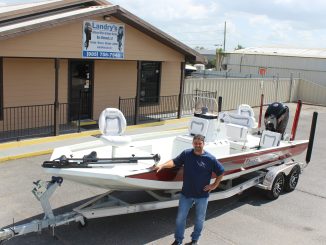
Louisiana’s deteriorating coast got a lot of play this past week in national magazines. Two of the most popular, Time and Fortune, gave it prime coverage.
The two magazines took somewhat different approaches to the tragic storms that passed and what lies ahead. Time concentrated on the problems that exist in New Orleans and the fact that it still is not safe from storms. Fortune, on the other hand, took a more southern route, exploring the area of Fourchon where one fifth of the nation’s fuel begins its journey to market.
Together, these magazines should exert a lot of pressure on the powers that be in the nation, telling them that if they don’t act fast, this country will lose part of its most valuable territory. Oil, fishing and shipping make Louisiana one of the most important states in the nation which cannot live the life it has enjoyed without it.
When the French occupied New Orleans in 1718, they didn’t need hurricane levees because the wetlands protected the city from storms coming in from the Gulf. Now much of those wetlands are gone and the city will be on the Gulf in 10 years unless the coast is restored.
Time asserts that New Orleans may need bigger and better levees today but it needs its eroding wetlands just as desperately. One slogan is “Make Levees, Not War.” Another is “Fix the Coast, or We Are Toast!”
Fortune reports that Port Fourchon feels like the edge of the world. What started out as a base for two companies now accomodates more than 250.
Pipelines for oil and gas extend throughout the surrounding marshes. Some that were built on top of the marsh are now six feet under water due to erosion from the Gulf.
The magazine states that it will cost some $50 billion to restore the coast during the next 30 or 40 years, most of which will have to come from the federal government. And there is fear among many Louisianians that much of that will be used for levees which is part of the problem. Building of levees along the Mississippi River were the main cause of erosion of the coast which previously was renewed yearly with silt when the Mississippi River overflowed its banks. And levees in the wetlands interfere with the natural flow of water which helps keep them healthy.
Fortune claims that many people in the state feel Louisiana sacrificed its land to bring the nation its natural resources. And now the country should come to its rescue. As longtime environmentalist and Tulane law professor Oliver Houck wrote last year, “Today we tell Congress that we ‘sacrificed’ ourselves for the national good,” referring to our role in producing the oil that is powering the nation. And its clear that other states won’t volunteer to replace Louisiana if our coast disappears and we cannot produce that oil in the future. Especially not California or Florida which have been fighting against drilling off their coasts for some time.
“The last time I checked,” says Falgout, “there was nobody waiting in line to take Louisiana’s place in servicing the energy industry. Certainly not California and Florida. The environmental impacts to moving somewhere else would be huge. And in this country, it just ain’t going to happen.”
And so it goes. Louisiana is getting a lot of national attention to its coastal problem. The country needs us. Hopefully, it will help us solve it.
Since the federal government takes most of the tax money collected in Louisiana, it stands to reason it should divvy it out to help protect its most valuable territory. Shouldn’t it?





Be the first to comment